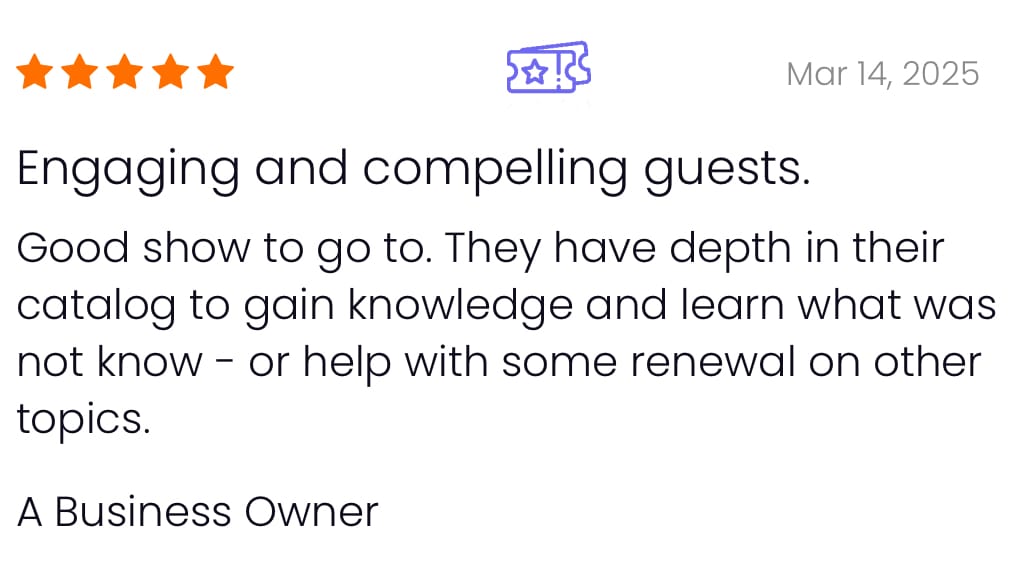- EZ Reflections
- Posts
- The Power of Belief
The Power of Belief
The Power of Belief
In last week's episode of EZ Conversations, I had the opportunity to chat with Zahra Karsan (Listen Here). We discussed her incredible journey of building her coaching program based on her book, 6 Weeks to Happy, where she guides people to rediscover happiness through simple, purposeful practices. Zahra shared how growing up under Apartheid in South Africa—witnessing racial segregation up close and internalizing it as shame—fueled her determination to pursue something more meaningful in life.
We also discussed the risk she took in switching careers to pursue her purpose. Despite the uncertainty, Zahra emphasized her unwavering belief in herself. It was a powerful reminder of the transformative power of self-belief. We explored the neuroscience behind it, specifically, how neuroplasticity and synaptic strengthening through repeated practice allow us to reshape our brains, master skills, and build more fulfilling lives over time.
The deeper layers: Self-belief and faith
As I reflected on this conversation and my experiences throughout the week, I noticed how my self-belief has been reinforced. But for me, the profound results of belief have also come from something deeper: faith.
There’s a level of trust—both in myself and in something greater—that I’ve had to cultivate over the past few years. This faith has helped me see many meaningful aspects of life take shape, even when circumstances seemed stacked against me. None of this would have been possible without learning to surrender what I couldn’t control. Sometimes, it meant holding on to the belief that adversity itself could eventually yield something worthwhile.
Of course, it’s hard to think that way when suffering feels overwhelming. That’s when surrender becomes essential—and surrender isn’t possible without faith. Faith in one’s abilities, yes, but also faith in a Higher Power, or simply in the unfolding of life’s process.
Why belief works: The science
Research consistently shows that self-belief and purpose dramatically shape our brains and our lives.
Neuroplasticity, the brain’s ability to rewire itself through experience and practice, is central to this concept. Studies show that repeated mental and behavioural exercises can strengthen neural connections, enhancing learning and resilience (Draganski et al., 2004; Doidge, 2007). This means that the more we practice believing in ourselves or focusing on purposeful goals, the more our brain physically adapts to support those beliefs.
Hope and optimism, closely linked to belief, have been associated with reduced stress, improved immune function, and even better cardiovascular outcomes (Segerstrom & Miller, 2004).
Importantly, faith in something beyond ourselves—whether spiritual or existential—has been shown to buffer the effects of adversity. Studies in positive psychology and existential well-being reveal that individuals who maintain spiritual or transcendent beliefs report greater meaning and better mental health outcomes, even in the face of hardship (Pargament, 2013; Park, 2010).
The takeaway
So, in this week’s edition of EZ Reflections, I wanted to expand on the power of belief. Whether it’s Zahra’s story of career reinvention, my reliance on faith through adversity, or the many stories we hear of people defying the odds, belief truly does change us—not just metaphorically, but biologically and psychologically.
Suppose you’re navigating uncertainty or hardship right now. In that case, I encourage you to nurture that belief in your capacity to adapt—and, if it resonates, to also lean on faith in something greater. Over time, both science and lived experience show that this combination can transform how we live, love, and grow.
References
Draganski, B., Gaser, C., Busch, V., Schuierer, G., Bogdahn, U., & May, A. (2004). Changes in grey matter induced by training. Nature, 427(6972), 311–312. https://doi.org/10.1038/427311a
Doidge, N. (2007). The brain that changes itself: Stories of personal triumph from the frontiers of brain science. Viking.
Segerstrom, S. C., & Miller, G. E. (2004). Psychological stress and the human immune system: A meta-analytic study of 30 years of inquiry. Psychological Bulletin, 130(4), 601–630. https://doi.org/10.1037/0033-2909.130.4.601
Pargament, K. I. (2013). Spiritually integrated psychotherapy: Understanding and addressing the sacred. Guilford Press.
Park, C. L. (2010). Making sense of the meaning literature: An integrative review of meaning making and its effects on adjustment to stressful life events. Psychological Bulletin, 136(2), 257–301. https://doi.org/10.1037/a0018301

A snippet of the Episode
Head to YouTube for the full episode. Or Subscribe below:
What people are saying about the podcast:

Quote of the Week:
“Fear and faith both demand you believe in something you cannot see. You choose!”
Subscribe to the Podcast and Newsletter
Sponsors
Join over 4 million Americans who start their day with 1440 – your daily digest for unbiased, fact-centric news. From politics to sports, we cover it all by analyzing over 100 sources. Our concise, 5-minute read lands in your inbox each morning at no cost. Experience news without the noise; let 1440 help you make up your own mind. Sign up now and invite your friends and family to be part of the informed.


Reply